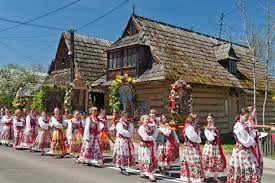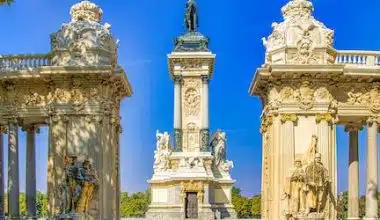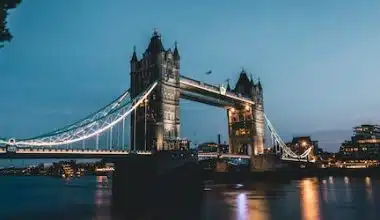Explore the rich tapestry of Polish culture through its vibrant array of holidays. From cherished traditions to festive celebrations Poland’s cultural heritage is reflected in its holidays, including New Year’s Day, Epiphany, Constitution Day, Labor Day, Polish Armed Forces Day, Women’s Day, and Easter. These holidays celebrate various aspects of Poland’s history, including the signing of the Constitution, the achievements of workers, the Assumption of Mary, and the importance of women. These holidays are unique and could make your vacation stay in Poland exciting.
Polish Holidays
Poland has a rich cultural heritage, and its holidays reflect the country’s traditions and history. Here is a list of some of the major Polish holidays
#1. New Year’s Day (Nowy Rok or Sylwester): January 1
This is a national holiday in Poland, and most shops and businesses are closed. It is a day for people to recover from New Year’s Eve celebrations and spend time with family.
#2. Epiphany (wito Trzech Krli) – January 6
Epiphany is a Christian holiday that commemorates the visit of the Magi to the baby Jesus. In Poland, it is a national holiday, and people often attend church services and participate in processions.
#3. Constitution Day (wito Konstytucji 3 Maja) – May 3
This holiday celebrates the signing of the Constitution of May 3, 1791, which was one of the first modern constitutions in Europe. It is a national holiday in Poland, and people often participate in parades and cultural events.
#4. Labor Day (wito Pracy) – May 1
Labor Day is a global holiday that celebrates the achievements of workers. In Poland, it is a national holiday, and people often participate in rallies and demonstrations to advocate for workers’ rights.
#5. Polish Armed Forces Day and Feast of the Assumption of Mary (wito Wojska Polskiego and Wniebowziecie Najwitszej Maryi Panny) – August 15
This holiday commemorates the Polish Armed Forces and the Assumption of Mary. It is a national holiday in Poland, and people often attend military parades and religious ceremonies.
#6. Women’s Day (Dzie Kobiet)
Women’s Day is celebrated on March 8th and is a day to honor and appreciate women. It is a popular holiday in Poland, and people often give flowers and small gifts to the women in their lives.
#7. Easter (Wielkanoc)
Easter is a significant holiday in Poland, celebrated with religious traditions and customs. Good Friday and Easter Monday are both public holidays in Poland. People attend church services, participate in processions, and engage in Easter-related activities such as decorating eggs and preparing special meals.
#8. Independence Day (Narodowe wito Niepodlegoci)
Independence Day is celebrated on November 11th and commemorates Poland’s independence regained in 1918 after 123 years of partition and foreign rule. It is a national holiday, and people often participate in parades, concerts, and other patriotic events.
#9. Christmas (Boe Narodzenie)
This is a major holiday in Poland, celebrated with religious and cultural traditions. Christmas Eve, known as Wigilia, is the most important part of the celebration. Families gather for a festive meal, exchange gifts, and attend midnight Mass. Christmas Day and the day after Christmas (known as the Second Day of Christmas) are also public holidays.
#10. All Souls’ Day (Zaduszki)
All Souls’ Day is observed on November 2nd and is a day to remember and honor the deceased. People visit cemeteries to clean and decorate graves, light candles, and say prayers for their loved ones.
Polish holidays are celebrated throughout Poland, and their significance is deeply ingrained in Polish culture.
Places Where Polish People Celebrate Traditional Polish Holidays
#1. Homes and Families
Traditional Polish holidays are primarily celebrated in the intimate setting of homes and families. Families gather together to observe customs, share meals, exchange gifts, and participate in holiday traditions. These celebrations create a warm and festive atmosphere within households.
#2. Churches and Religious Institutions
Many traditional Polish holidays have religious significance, and therefore, churches and religious institutions play a central role in the celebrations. People attend special religious services, such as midnight mass on Christmas Eve or Easter vigil, to commemorate religious holidays and engage in spiritual practices.
#3. Public Spaces and Town Squares
Some traditional Polish holidays involve public celebrations and festivities. Town squares, parks, and public spaces become vibrant with decorations, music, performances, and cultural events. Examples include St. John’s Night bonfires, Corpus Christi processions, and various festivals that showcase Polish traditions.
#4. Cemeteries and Gravesites
Visit cemeteries to clean and decorate graves, light candles, and say prayers for departed loved ones on All Saints’ Day, a significant holiday in Poland. Cemeteries become places of remembrance and reflection during this holiday.
#5. Cultural and Historical Sites
Certain traditional Polish holidays are celebrated at specific cultural or historical sites that hold significance. For example, the Jewish Culture Festival takes place in Warsaw, showcasing Polish Jewish heritage. Similarly, festivals and events may be held in historical locations that have cultural or historical relevance.
#6. Festivals and Events
Poland hosts numerous festivals and events throughout the year to celebrate traditional Polish holidays. These events attract locals and tourists alike and provide an opportunity to experience Polish culture, music, dance, and cuisine. Examples include the Easter Market, Christmas markets, and various regional festivals.
#7. Cultural Centers and Museums
Cultural centers and museums in Poland often organize special exhibitions, performances, and workshops related to traditional Polish holidays. These venues provide opportunities for people to learn about the history, customs, and significance of the holidays in an educational and interactive setting.
#8. Restaurants and Cafes
Polish holidays are also celebrated in restaurants and cafes, where people gather to enjoy traditional Polish cuisine and festive meals. These establishments may offer special holiday menus or dishes that are specific to the occasion.
#9. Outdoor Spaces and Parks
During certain holidays, public parks and outdoor spaces become venues for celebrations, performances, and cultural events. People gather in these areas to enjoy music, dance, traditional games, and other festivities.
#10. Polish Communities Abroad
Polish communities living abroad, particularly in countries with significant Polish diaspora, also celebrate traditional Polish holidays. These communities organize events, gatherings, and cultural programs to maintain their connection to Polish heritage and traditions.
Traditional Polish Holidays
Polish holidays are deeply rooted in Catholic tradition and often have a distinct Polish flavor in their foods, colors, and celebrations.
These are the traditional Polish holidays
#1. All Saints’ Day (Wszystkich Świętych)
All Saints’ Day, observed on November 1st, is a solemn holiday in Poland. People visit cemeteries to honor their deceased loved ones by cleaning and decorating graves, lighting candles, and saying prayers. The cemeteries become beautifully illuminated with thousands of flickering candles, creating a serene and spiritual atmosphere.
#2. Corpus Christi (Boże Ciało)
Corpus Christi is a Catholic holiday celebrated on the Thursday following Trinity Sunday. It commemorates the belief in the real presence of Jesus Christ in the Eucharist. In Poland, it is a public holiday, and processions take place in many towns and villages. The streets are adorned with flower petals and greenery, and the procession is led by the clergy carrying the Blessed Sacrament under a canopy.
#3. St. Andrew’s Day (Andrzejki)
St. Andrew’s Day is celebrated on November 30th and is associated with fortune-telling and divination. It is believed that on this night, young unmarried women can predict their future husbands. Various customs and games are performed, such as pouring hot wax into cold water to create shapes that symbolize the future.
#4. Fat Thursday (Tłusty Czwartek)
Fat Thursday is celebrated on the last Thursday before Lent begins. It is a day when people indulge in eating traditional Polish pastries called pączki, which are deep-fried doughnuts filled with jam or other sweet fillings. Bakeries and pastry shops are filled with an array of pączki flavors, and it is a day to enjoy these delicious treats.
#5. St. John’s Night (Noc Świętojańska)
St. John’s Night, also known as Midsummer Night, is celebrated on June 23rd. It is a pagan-inspired holiday that marks the summer solstice. People gather around bonfires, sing songs, and participate in various rituals and customs to celebrate the longest day of the year.
#6. Harvest Festival (Dożynki)
The Harvest Festival is a traditional Polish holiday celebrated in late summer or early autumn, usually in September. It is a time to give thanks for the bountiful harvest. Festivities include parades, folk dances, music, and the crowning of a Harvest Queen. The celebration often involves traditional Polish dishes made from freshly harvested crops.
#7. St. Nicholas Day (Mikołajki)
St. Nicholas Day is celebrated on December 6th. It is a day when children receive small gifts and treats from St. Nicholas (Święty Mikołaj). In some regions of Poland, St. Nicholas is accompanied by an angel and a devil-like figure called Krampusz, who rewards well-behaved children and admonishes those who have been naughty.
#8. Andrzejki (St. Andrew’s Eve)
Andrzejki is celebrated on the night of November 29th, the eve of St. Andrew’s Day. It is a time for fortune-telling and divination games. Young unmarried women often participate in rituals to predict their future husbands. This holiday is filled with fun and anticipation for what the future holds.
#9. Name Day (Imieniny)
Name Day is a celebration of one’s given name. Each day of the year is associated with specific names, and people who bear those names celebrate their Name Day. It is a time for family and friends to gather, exchange greetings, and offer congratulations to those celebrating their Name Day.
Benefits Of Traditional Polish Holidays
Traditional Polish holidays offer several benefits to individuals and society as a whole. Some of the benefits associated with these holidays include
#1. Cultural Preservation
Traditional Polish holidays play a crucial role in preserving and promoting Polish culture. They provide an opportunity to showcase and pass down customs, rituals, and traditional practices from one generation to another. These holidays help maintain a sense of cultural identity and strengthen the cultural fabric of Polish society.
#2. Family and Community Bonding
Traditional Polish holidays emphasize the importance of family and community. They serve as occasions for families to come together, share meals, exchange gifts, and engage in festive activities. These holidays foster a sense of unity, love, and togetherness among family members and the broader community.
#3. Religious Devotion
Many traditional Polish holidays have a deep religious significance, particularly in the predominantly Catholic country. These holidays provide a time for spiritual reflection, attending religious services, and deepening one’s faith. They offer an opportunity for individuals to connect with their religious beliefs and strengthen their relationship with God.
#4. Appreciation of Nature and Seasons
Some traditional Polish holidays, such as St. John’s Night and the Harvest Festival, celebrate nature and the changing seasons. These holidays allow people to connect with the natural world, appreciate its beauty, and express gratitude for the bountiful harvest. They promote a sense of environmental awareness and stewardship.
#5. Emotional Well-being
Traditional Polish holidays bring joy, happiness, and a sense of anticipation. They provide a break from daily routines and offer moments of celebration and relaxation. Participating in holiday traditions and festivities can uplift spirits, reduce stress, and contribute to overall emotional well-being.
#6. Culinary Delights
Special dishes and culinary traditions are frequently associated with traditional Polish holidays. These holidays offer an opportunity to savor traditional Polish cuisine, which is known for its hearty and flavorful dishes. Sharing meals and enjoying traditional foods during these holidays can create a sense of culinary pride and appreciation.
#7. Historical Awareness
Traditional Polish holidays often have historical significance tied to Poland’s past. They serve as reminders of important events, milestones, and struggles in Polish history. Celebrating these holidays helps to foster a sense of historical awareness and pride in Polish heritage.
#8. Sense of Belonging and Identity
Celebrating traditional Polish holidays helps individuals develop a sense of belonging and cultural identity. It instills a sense of pride in Polish heritage and allows people to connect with their roots. This sense of identity contributes to personal well-being and a stronger sense of community.
#9. Intergenerational Connections
Traditional Polish holidays provide opportunities for different generations to come together and engage in shared traditions. Grandparents, parents, and children can bond over holiday preparations, rituals, and celebrations. This strengthens family ties and fosters a sense of continuity between generations.
#10.Economic Impact
Traditional Polish holidays have a positive economic impact on various sectors. They boost tourism, as visitors are attracted to experience the unique cultural celebrations and traditions. Additionally, the holiday season often leads to increased consumer spending on gifts, food, decorations, and other related items, benefiting local businesses and the economy.
What Is a Famous Holiday in Poland?
Poland is known for several famous holidays, but one of the most renowned is Christmas (Boże Narodzenie). Celebrated throughout the country, Christmas holds great significance in Polish culture. The festivities begin on Christmas Eve, known as Wigilia, and involve breaking the Christmas wafer (opłatek), attending Midnight Mass, and exchanging gifts and good wishes. Another notable holiday is Easter (Wielkanoc), which commemorates the resurrection of Jesus Christ. Polish Easter traditions include the blessing of Easter baskets, attending Easter Sunday Mass, and participating in the lively Śmigus-Dyngus tradition.
What Are National Polish Days?
Poland celebrates several national days of historical and cultural significance. Notable among them is National Independence Day on November 11th, commemorating Poland’s recovery of sovereignty in 1918. Constitution Day on May 3rd marks the adoption of Poland’s first modern constitution. The National Day of the Rebirth of Poland on July 22nd remembers the signing of the PKWN Manifesto in 1944. These days are celebrated with various events and ceremonies to honor Poland’s independence, constitution, and resilience.
Is Christmas A Holiday In Poland?
Yes, Christmas is indeed a holiday in Poland. It is a major annual celebration and one of the most important religious holidays for Poles. The observance of Christmas in Poland combines old pagan customs with religious traditions introduced after the Christianization of the country. The celebration begins on the evening of December 24th, known as Wigilia, with a traditional Christmas Eve vigil supper. Christmas trees are decorated, and families exchange gifts. Christmas in Poland is called “Boże Narodzenie,” which translates to ‘God’s Birth’. It is a time for families to come together, share a festive meal, and celebrate the holiday with various traditions and customs
Is Saturday Off In Poland?
Yes, Saturday is generally considered a work-free day in Poland. According to Polish labor laws, Sundays and public holidays are designated as non-working days, and employees are entitled to a day off on these days. However, there may be exceptions or specific circumstances where work on Saturdays is permitted or required. For example, certain industries or professions may have different working schedules or arrangements.
What Is The Biggest Celebration In Poland?
The biggest celebrations in Poland include National Independence Day on November 11th, Christmas, the Jagiellonian Fair in Lublin, the Orange Warsaw Festival, the Poland Rock Festival, and the Pierogi Festival in Krakow. These events attract large crowds and showcase a range of cultural and musical traditions.
How Many Holidays Are In Poland?
Poland celebrates 13 paid public holidays throughout the year. These holidays include New Year’s Day, Epiphany, Easter Sunday, Labor Day, Constitution Day, All Saints’ Day, Christmas, and more. If a public holiday falls on a Saturday, employees are entitled to an extra-paid day off. Additionally, employees may take an extra day off if a holiday falls on their scheduled day off.
Conclusion
Polish holidays are deeply ingrained in Polish culture and are celebrated in various settings. These holidays involve customs, religious services, and spiritual practices, creating a warm and festive atmosphere within households, churches, and historical sites. They promote cultural identity, family bonding, spiritual reflection, appreciation of nature, emotional well-being, culinary delights, historical awareness, and a sense of belonging. These holidays also foster a sense of connection between different generations, promoting unity and love among family members.
- WINDY ROAD IN SAN FRANCISCO: Explore The Thrills
- DEVIL’S POOL: A Thrilling Adventure at the Edge of Victoria Falls
- SOUTH AFRICA HOLIDAYS: A Land of Breathtaking Landscapes and Diverse Cultures
- 10 INTERESTING THINGS TO DO IN SLEEPY HOLLOW, NYC THIS WEEKEND
- HOLIDAY CRUISES: Best Thrilling Destinations
- THRILLING CHRISTMAS HOLIDAY CRUISES: Best Deals & Itinerary
- BRAZIL HOLIDAYS TO LOOK OUT FOR





